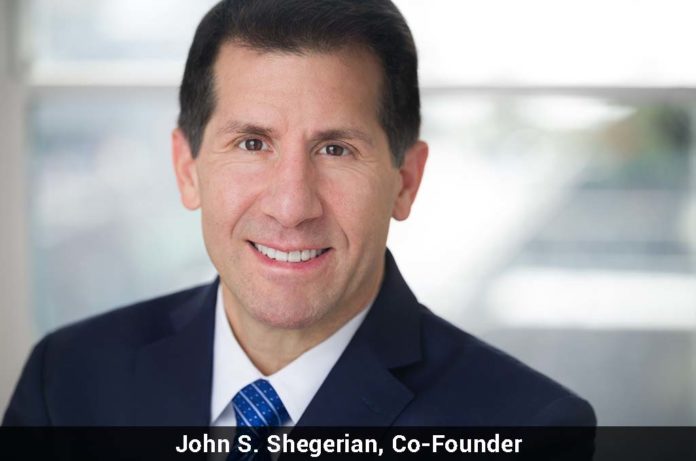Electronic devices are being discarded and replaced at the fastest pace in history. At the rapid rate that technology is improving, businesses, government agencies, and individuals are all upgrading to the latest and greatest faster than ever before. This has produced a tremendous glut of e-waste and unwanted electronics containing toxic elements that historically end up in landfills.
Being environmentally responsible and sustainability-minded, John S. Shegerian, Co-Founder and Executive Chairman, ERI, decided to make it a mission to responsibly recycle e-waste. Addressing this issue, ERI came up with unique solutions backed by innovation and sustainability. He moved the company headquarters to Fresno, where ERI could utilize produce trucks that were returning empty to area farms and use them to carry recycled electronics.
After this, but still, early in its development, the company upgraded its innovation game, setting new standards for the growing industry with barcodes for tracking electric components, overhead cameras, and totally green facilities with electric forklifts and recycled furniture.
ERI recycles everything from phones and televisions to computers and printers. The electronic devices are broken down into different components before sending them to shredders or another ERI facility that will recycle them correctly. The company focuses on end-of-life electronics recycling, and long before it was a trend, added IT asset disposition (ITAD) to its services. This enables businesses to recover asset value from obsolete electronics and helps provide a second life for many of these working devices.
With the addition of ITAD in 2008, ERI had to balance growth with cost-effectiveness. The team designed its own shredder, which is now the largest and most efficient e-waste shredder technology in the world.
ERI also developed its own online asset tracking system, MyTrackTech, which enables its clients to track the entire lifecycle of each device, from initial shipment down to the individual part, unit, and commodity levels. MyTrackTech is the customer-facing component of TrackTech, ERI’s internal asset tracking system.
“We strive to exhibit the most radical transparency of any recycling company in the world,” says Shegerian.
The growth has been steady as well. Today, ERI has the capacity to process more than a billion pounds of electronic waste annually at its eight certified locations around the country, serving every zip code in the United States.
Another challenge that businesses and individuals face when it comes to end-of-life electronic devices is the sensitive data those devices contain. Hardware hacking has become an epidemic with companies, individuals and government agencies becoming vulnerable to attacks. Thus cybercrime and hardware hacking prevention became another challenge for ERI to successfully tackle, in keeping with its mission to protect organizations, people and the environment. Cybercriminals and hackers have become exceedingly sophisticated in the last decade, leading to an urgent need for responsible and fully integrated ITAD and e-waste recycling services.
ERI is the only recycler of electronics on the planet to be certified at the highest level by all leading environmental and data security oversight organizations to de-manufacture, recycle, and refurbish every type of electronic device in an environmentally responsible manner. On the sustainability side, ERI was the first recycler to be dual certified by both R2 and as a Basel Action Network e-steward. Moreover, ERI has achieved the highest rating from NAID at all of its facilities.
To help increase its sorting accuracy as its processing volume increases and to free up its employees to perform ITAD and data wiping services, ERI introduced innovative robots – SAM and ERNIE. The first-in-industry, A.I.-driven robots are tasked with separating out commodities after ERI’s proprietary shred process. By doing this, the technology enhances ERI’s already industry-leading sorting efficiencies and the overall quality of its commodities. The new robot technology has the potential to reach more than 95 percent purity of the material it sorts. ERI sees an expanded role for A.I. at its facilities beyond robotic sorting and is working to integrate it into other areas at the Fresno and Indiana locations. By next year, the company plans to have added robotics and AI to its other facilities across the country.
Partnerships have been a key element of ERI’s success as well. The company partnered with major retailer Best Buy and helped it launch its “Take Back” program. ERI also enabled Staples, its long-time partner, to recycle electronics for its business customers. The company also partnered with Alcoa and LS-Nikko Copper to create symbiotic relationships and make the most of the commodities. New York City teamed with ERI to start a first-of-its-kind, city-wide e-waste residential collection program called ecycleNYC. More than 20 million pounds of electronics have been properly recycled through this program, empowering residents to receive free curbside electronics recycling pickups. Also teaming with ERI, the city of Los Angeles’ Electronics Recycling Mail Back Program started in 2017, the primary goal of which was to enable Los Angeles residents to mail obsolete electronics for recycling by ordering the appropriate ERI Mail Back box online for a small fee. They can also drop them off at one of the city’s electronics recycling centers.
Setting industry standards in sustainability, data destruction, and innovation, ERI continues to work on solving more existing problems in the industry and pioneer new innovations to protect organizations, people and the environment.

























![Can ChatGPT Write Essays for You? [Answered Here] ChatGPT](https://theceoviews.com/wp-content/uploads/2023/06/Can-ChatGPT-Write-Essays-for-You-100x70.jpg)






